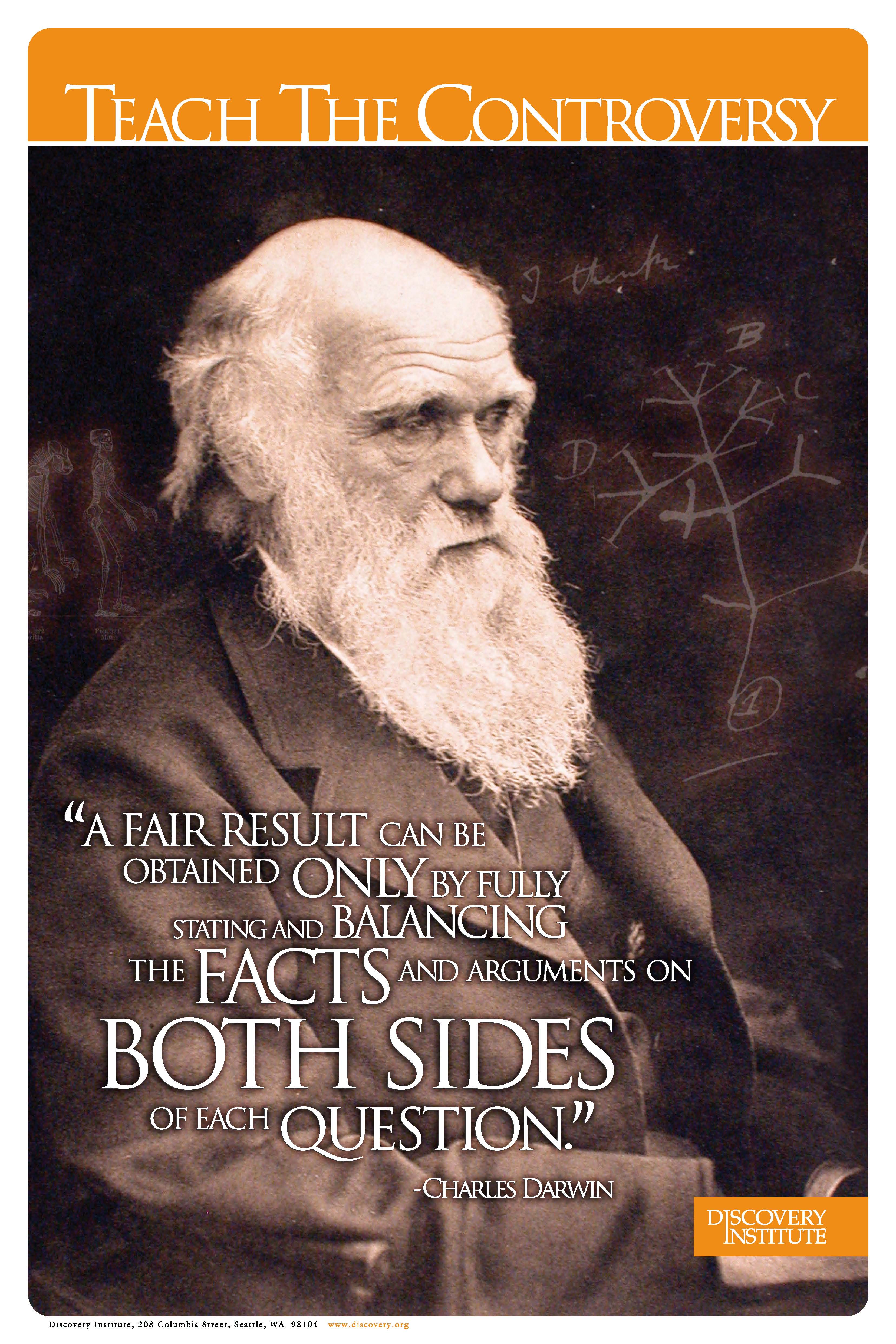 Education
Education
 Free Speech
Free Speech
Bills Protecting Academic Freedom on Evolution Multiply in Anticipation of Academic Freedom Day
Across the country legislation is moving forward that will protect teachers and students who want the freedom to discuss both the strengths and weaknesses of modern evolutionary theory.
 February 12 used to be universally recognized as the birthday of Abraham Lincoln–a day celebrating freedom. Needing a patron saint, modern Darwin lobbyists have recently converted February 12 into “Darwin Day.” At this very time, U.S. Congress’s lone atheist is trying to honor Darwin’s birth by submitting a congressional resolution to get a government declaration that Darwin’s theory is “strongly supported,” and attacking the teaching of dissenting viewpoints.
February 12 used to be universally recognized as the birthday of Abraham Lincoln–a day celebrating freedom. Needing a patron saint, modern Darwin lobbyists have recently converted February 12 into “Darwin Day.” At this very time, U.S. Congress’s lone atheist is trying to honor Darwin’s birth by submitting a congressional resolution to get a government declaration that Darwin’s theory is “strongly supported,” and attacking the teaching of dissenting viewpoints.
There’s nothing wrong with celebrating Darwin’s birthday–if that’s what you really want to do. But in recent years the advocacy of evolution has become increasingly associated with attempts to subvert intellectual freedom. To reclaim February 12 for those who love freedom, for the past few years Discovery Institute has called February 12 “Academic Freedom Day.”
To be sure, Darwin supported academic freedom. In Origin of Species, he openly acknowledged weaknesses in his arguments and declared that “a fair result can only be obtained by stating and balancing the facts and arguments on both sides of each question.” One would hope that Darwin’s latter-day defenders might follow his approach and allow debate over evolution in the classroom. But a lot has changed in the past 150 years. Today, Darwin lobbyists seek to stifle scientific dissent from their viewpoint by asserting that there are no serious scientific weaknesses in modern evolutionary theory (called neo-Darwinism).
To help combat the dogmatism that presently pervades evolution-education, Discovery Institute supports legislation that protects academic freedom for teachers who would dare to challenge Darwin in the classroom. There are presently academic freedom bills in Oklahoma, Tennessee, New Mexico, Kentucky, and Missouri.
As is expected, misinformation is already being spread about the bills. Yesterday I was informed that Oklahoma evolutionists are continuing to spread the myth that Louisiana’s Academic Freedom Law was declared unconstitutional. The truth is that the law hasn’t even been challenged in court. As I discuss here, ACLU Executive Director Marjorie Esman reportedly acknowledged that “if the Act is utilized as written, it should be fine; though she is not sure it will be handled that way.”
ClimateProgress is putting out the false claim that the legislation “forces teachers to question evolution.” That’s false. An academic freedom bill does not require teachers to teach anything differently. Topics like evolution will still be taught as a matter of required state law. All students will still need to learn and will be tested upon all aspects of state science standards. The bill still mandates that teachers follow the curriculum and teach the pro-evolution evidence. But it also gives teachers academic freedom to teach about credible scientific viewpoints that challenge the neo-Darwinian “consensus”–if they choose to do so.
And of course, we’re also hearing the standard false claim that the bills allow the teaching of creationism or religion. Despite the talking points of critics, academic freedom bills would not authorize or protect the teaching of creationism or any other religious viewpoint. According to a number of federal court rulings, creationism is a religious viewpoint that is illegal to advocate in public schools. Consistent with these rulings, most academic freedom bills contain language that expressly excludes the teaching of religion and only protects the teaching of scientific information. Such bills also typically contain a provision akin to the following:
The provisions of the Act shall only protect the teaching of scientific information, and shall not be construed to promote any religious or nonreligious doctrine, promote discrimination for or against a particular set of religious beliefs or nonbeliefs, or promote discrimination for or against religion or nonreligion.
Those who claim that academic freedom bills authorize the teaching of religion disregard the actual text of the bills.
Critics also claim the bills permit the teaching of intelligent design (ID). ID is different from creationism, but academic freedom bills say nothing about ID. Rather, the bills state that teachers should “be permitted to help students understand, analyze, critique, and review in an objective manner the scientific strengths and scientific weaknesses of existing scientific theories pertinent to the course being taught.” Under this language, academic freedom bills only pertain to topics already in the curriculum. Since ID isn’t part of the required curriculum anywhere in the United States, ID doesn’t come under such bills.
If there was any doubt that there is a need to protect academic freedom, consider the words of philosopher Jerry Fodor and cognitive scientist Massimo Piattelli-Palmarini in their book What Darwin Got Wrong:
We’ve been told by more than one of our colleagues that, even if Darwin was substantially wrong to claim that natural selection is the mechanism of evolution, nonetheless we shouldn’t say so. Not, anyhow, in public. To do that is, however inadvertently, to align oneself with the Forces of Darkness, whose goal is to bring Science into disrepute.
(Jerry Fodor and Massimo Piattelli-Palmarini, What Darwin Got Wrong, p. xx (Farrar, Straus and Giroux, 2010).)
If these respected academics are discouraged from criticizing Darwin, there seems no doubt that public school teachers need the protections of academic freedom legislation to allow intellectual objectivity in the science classroom.
